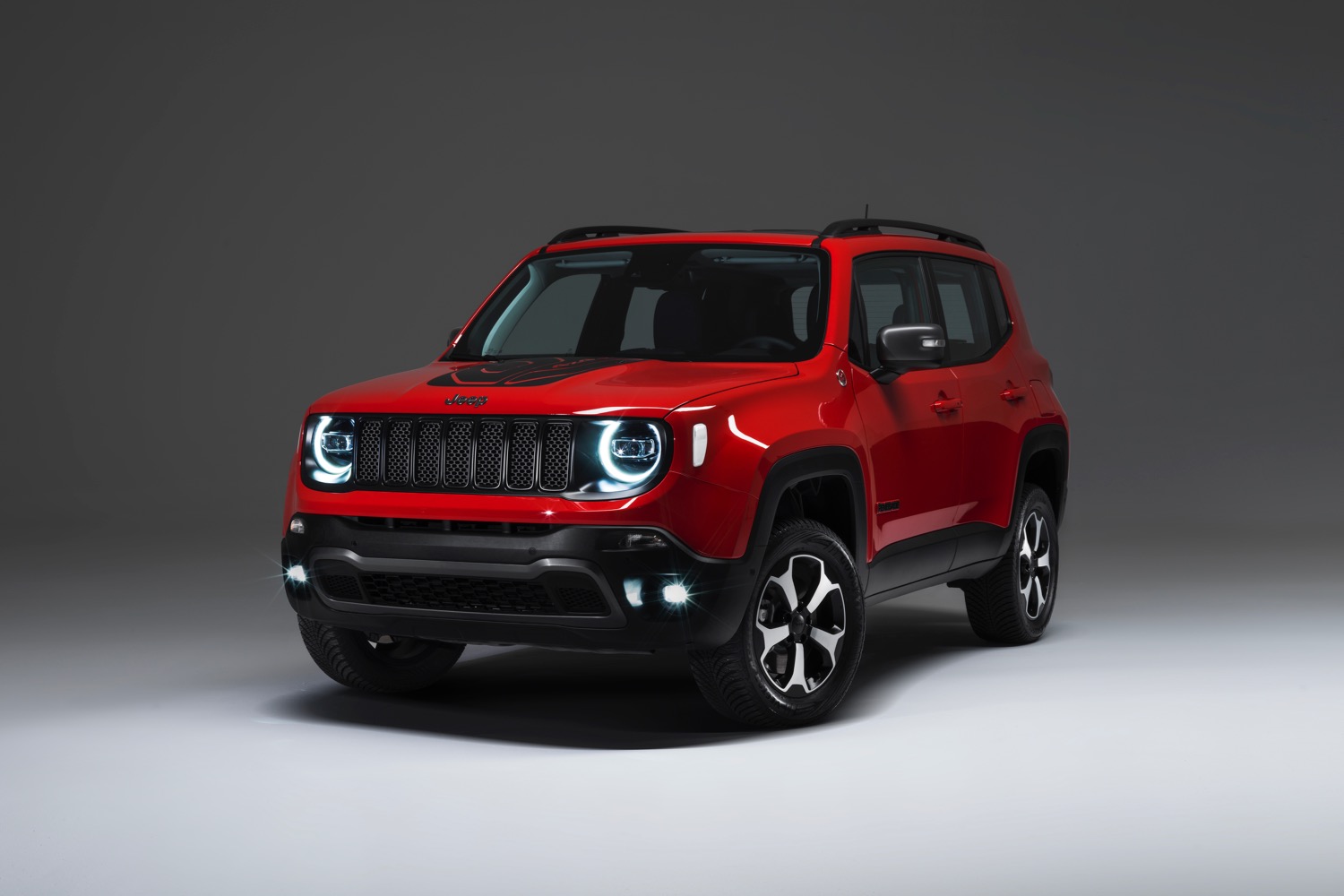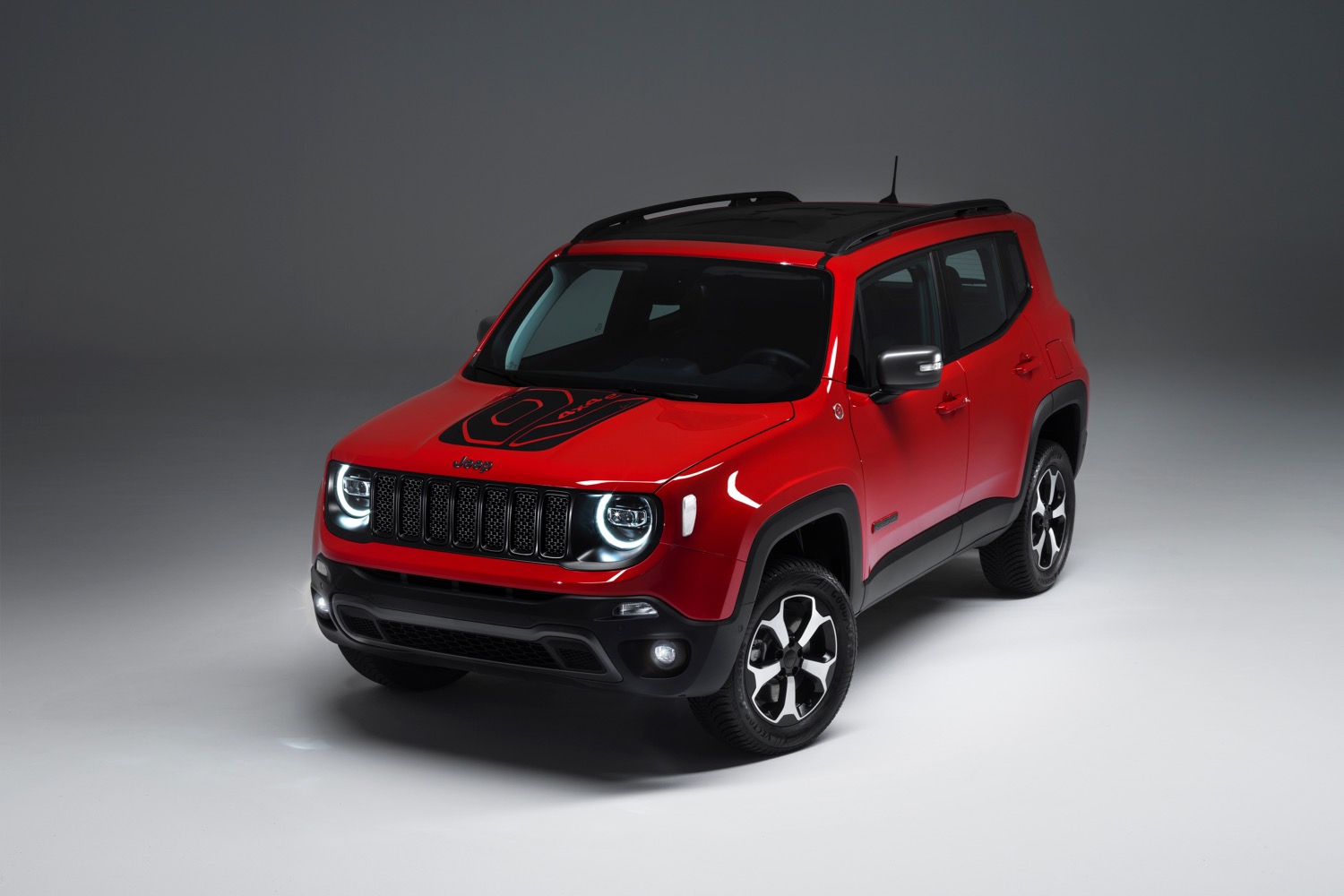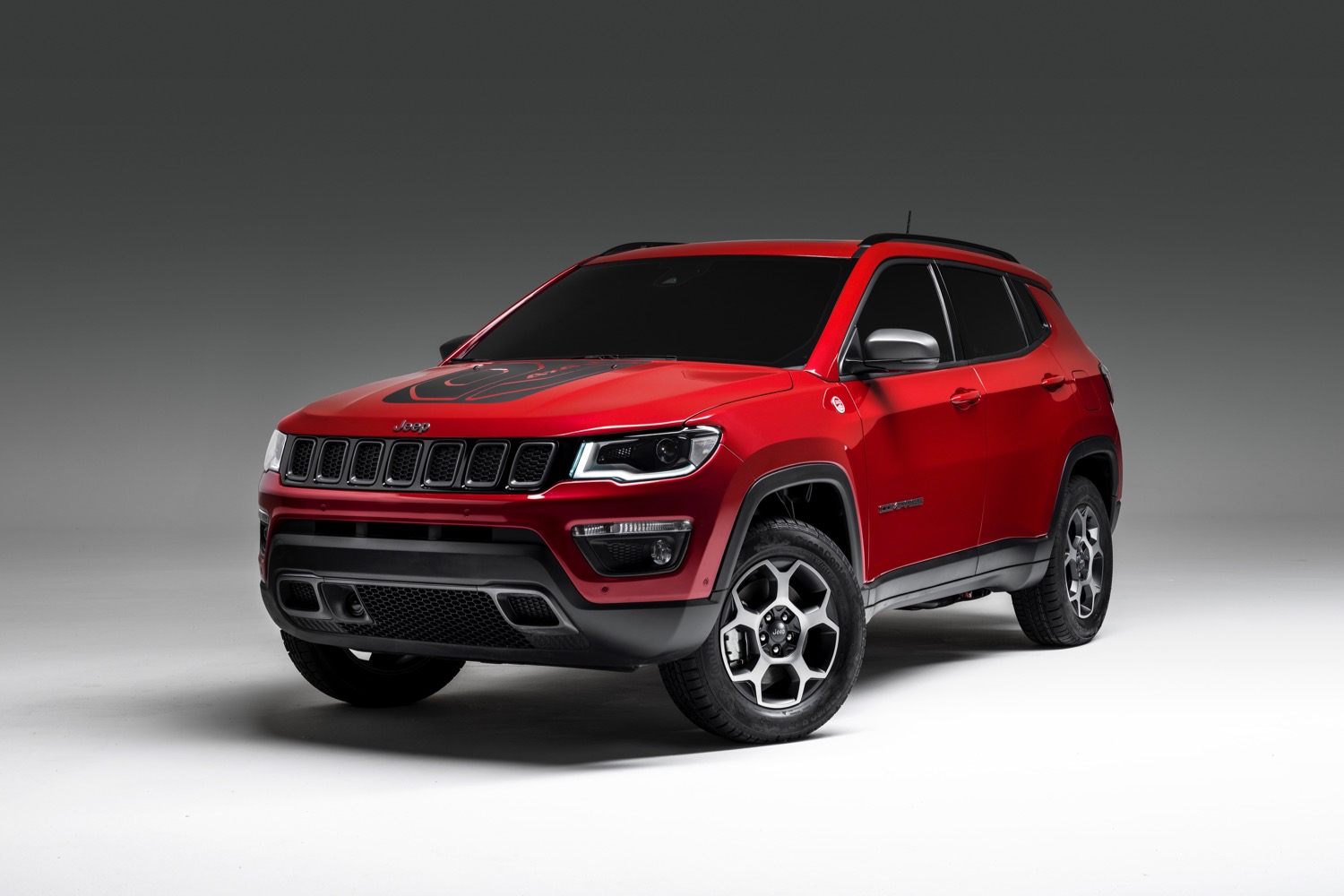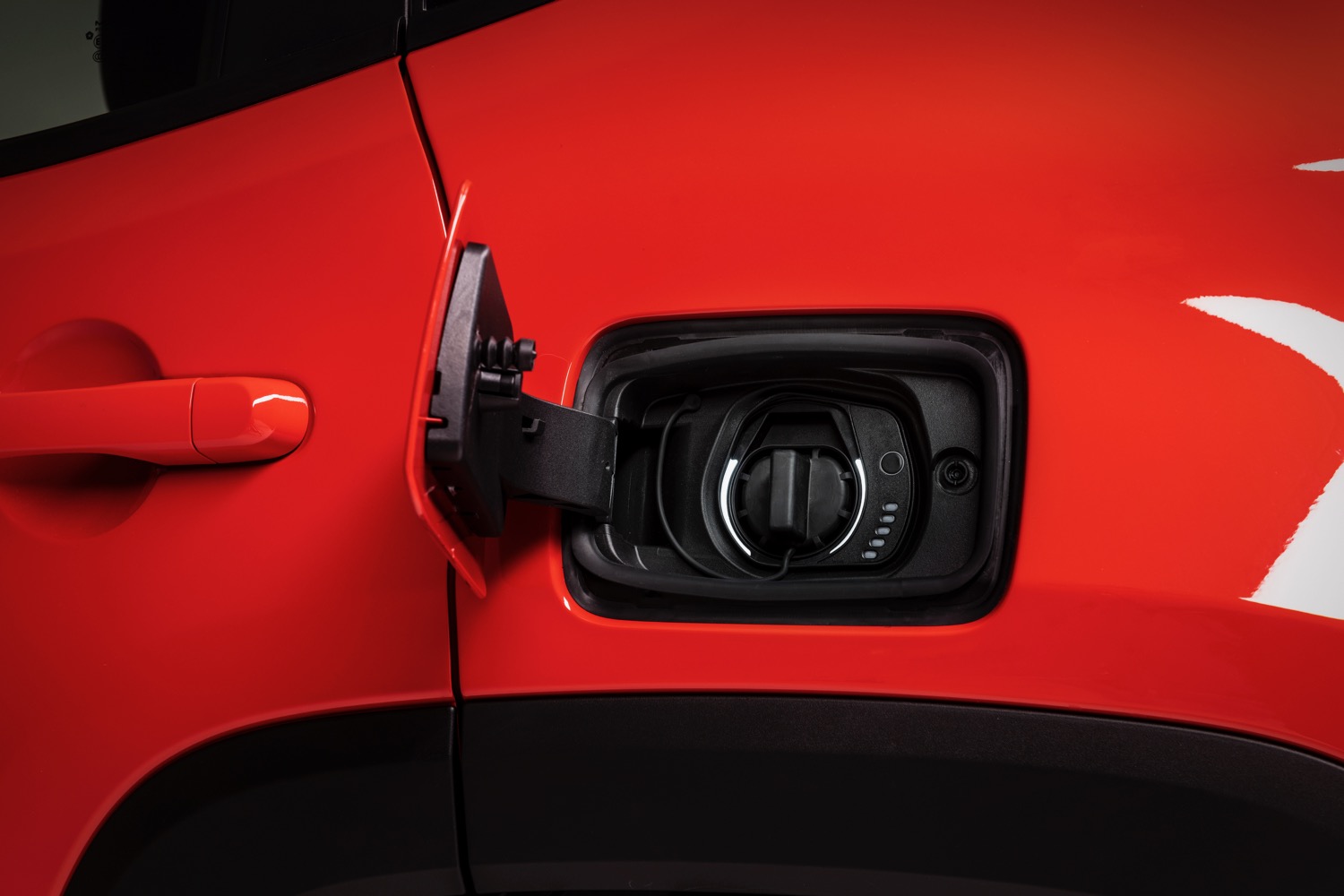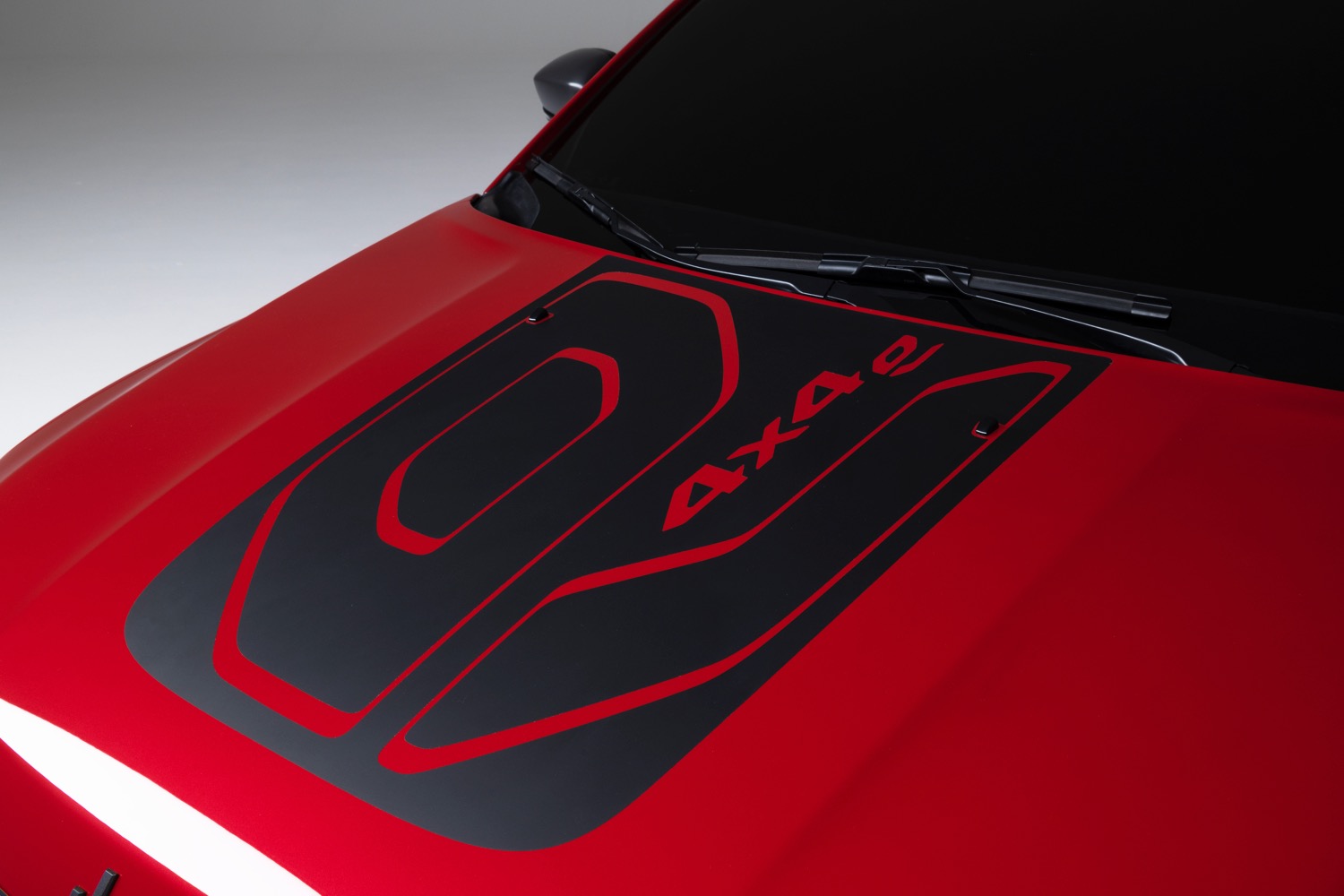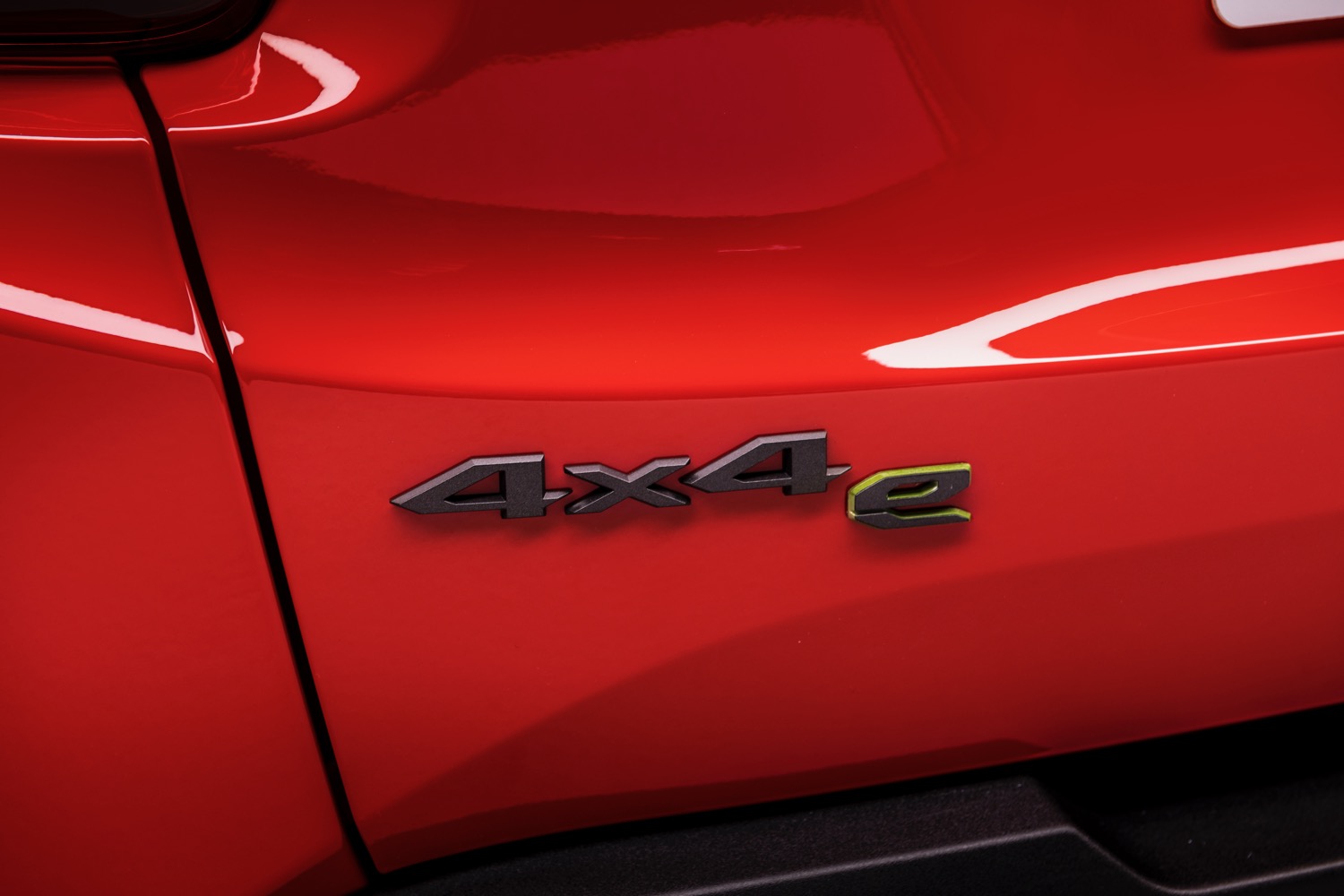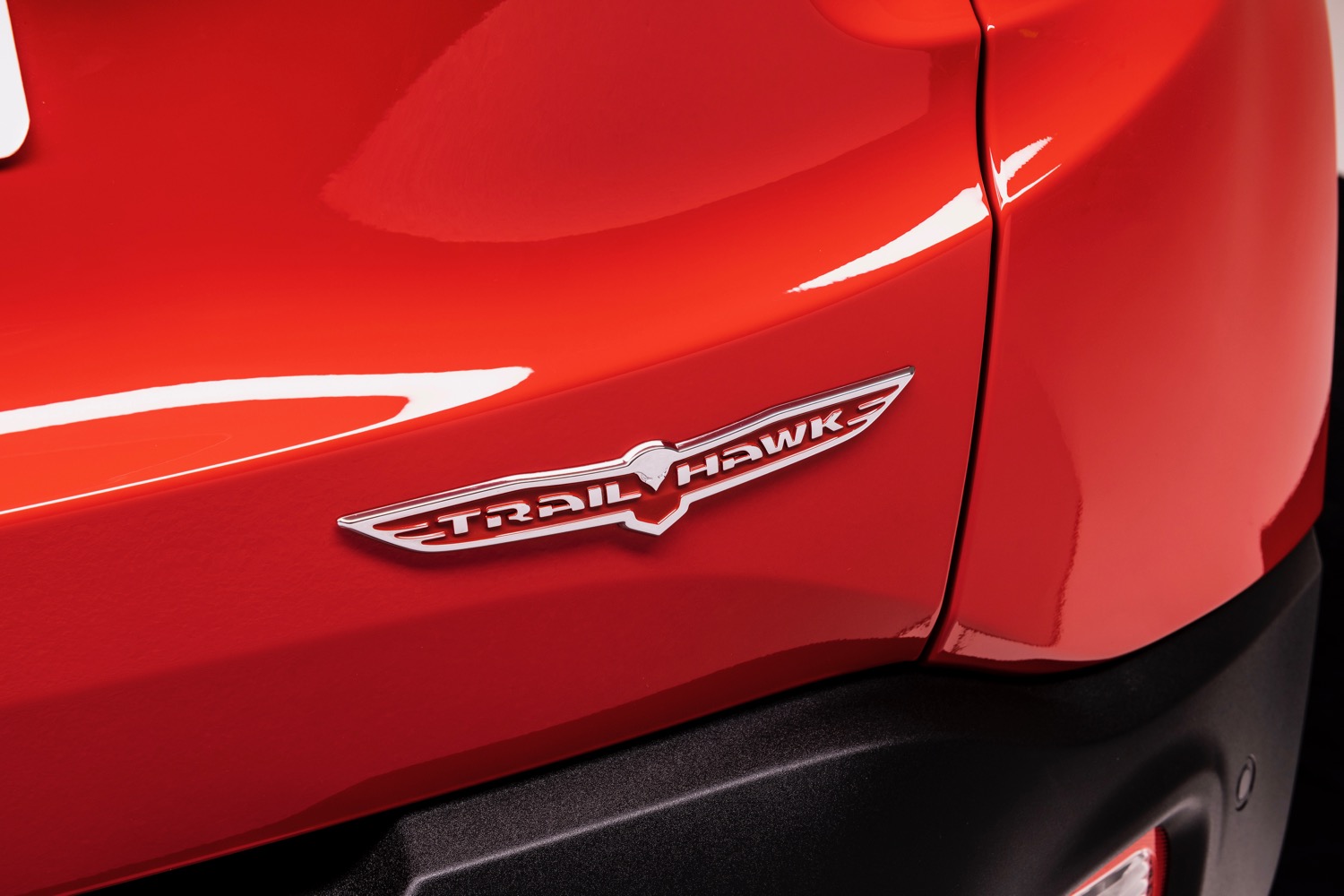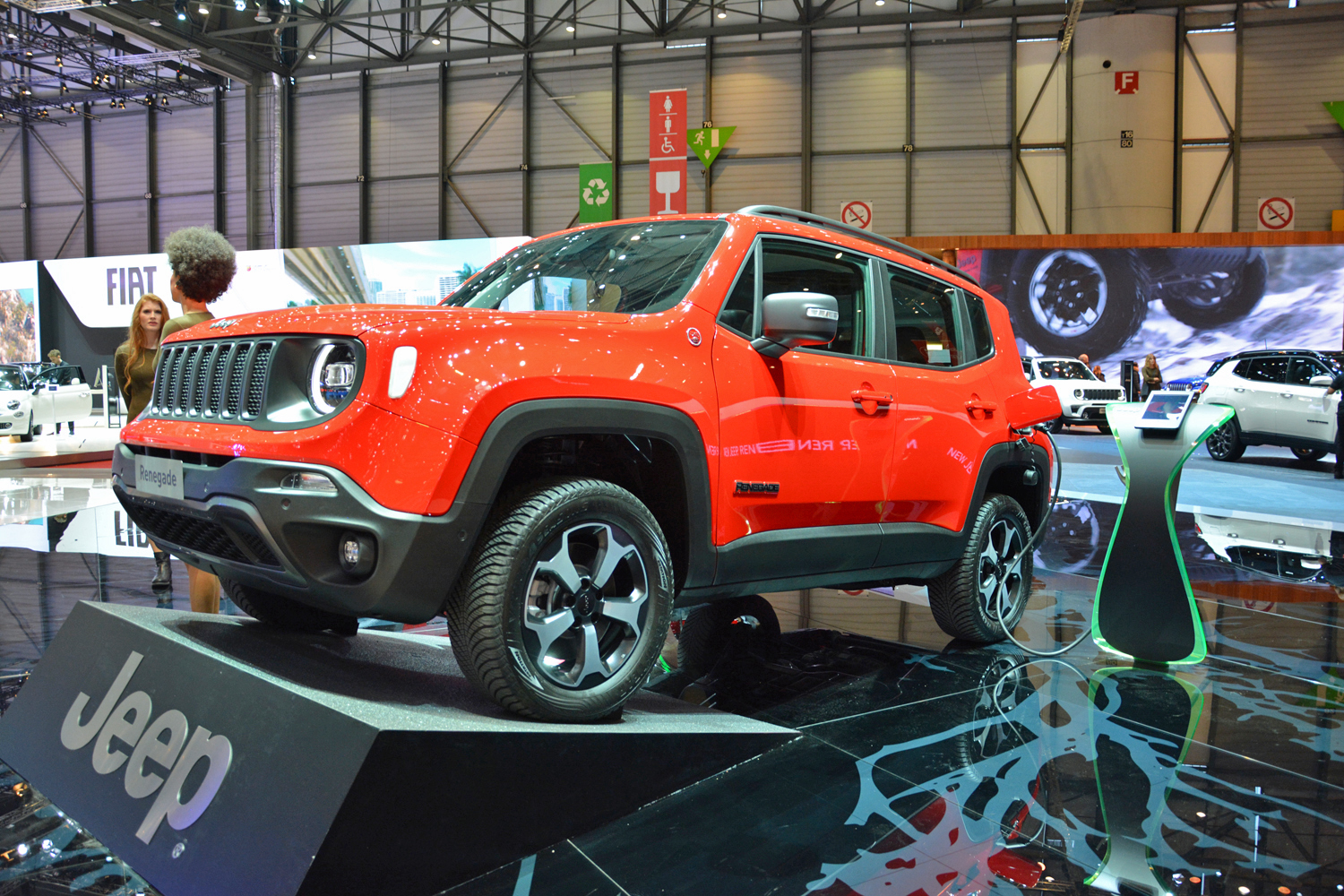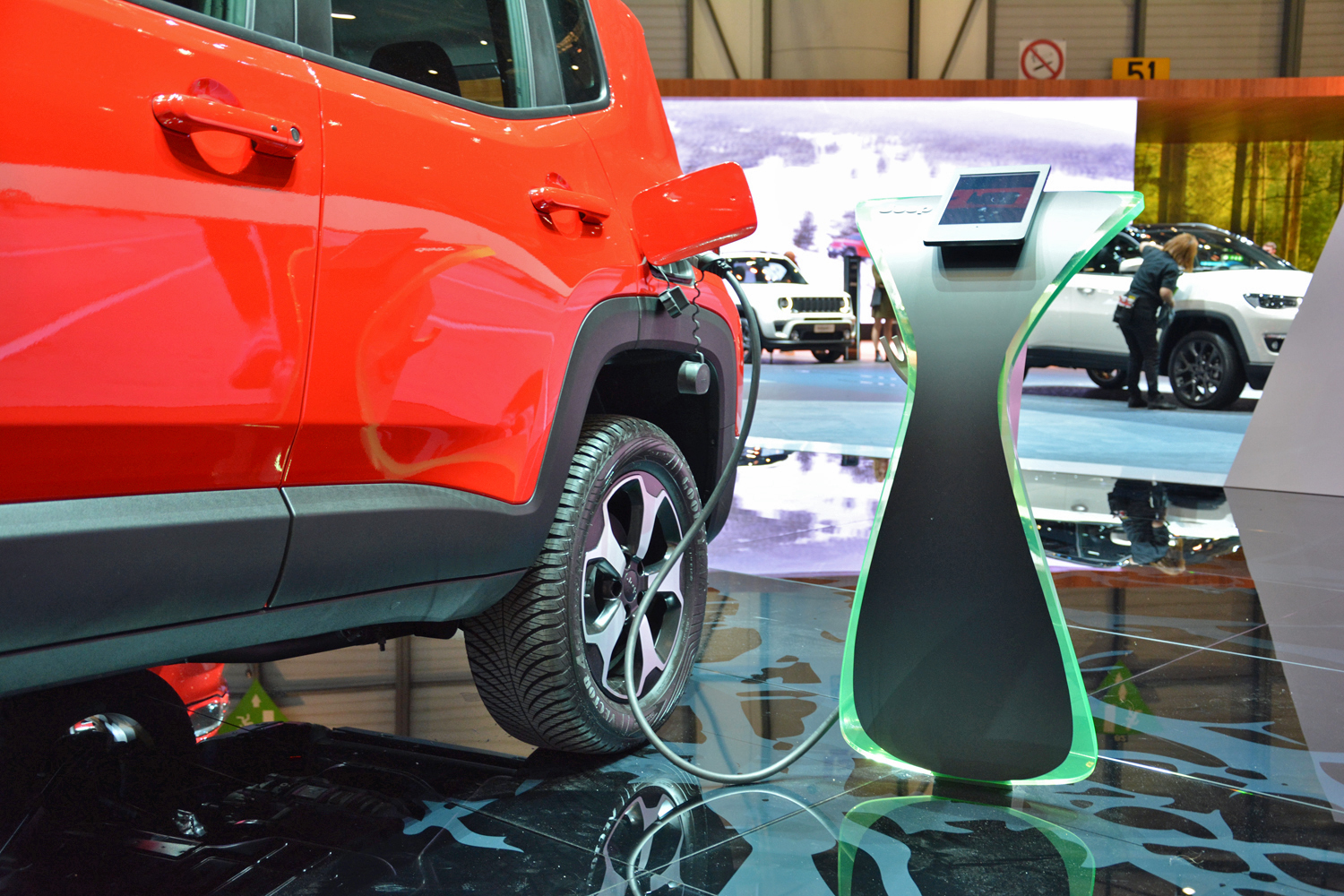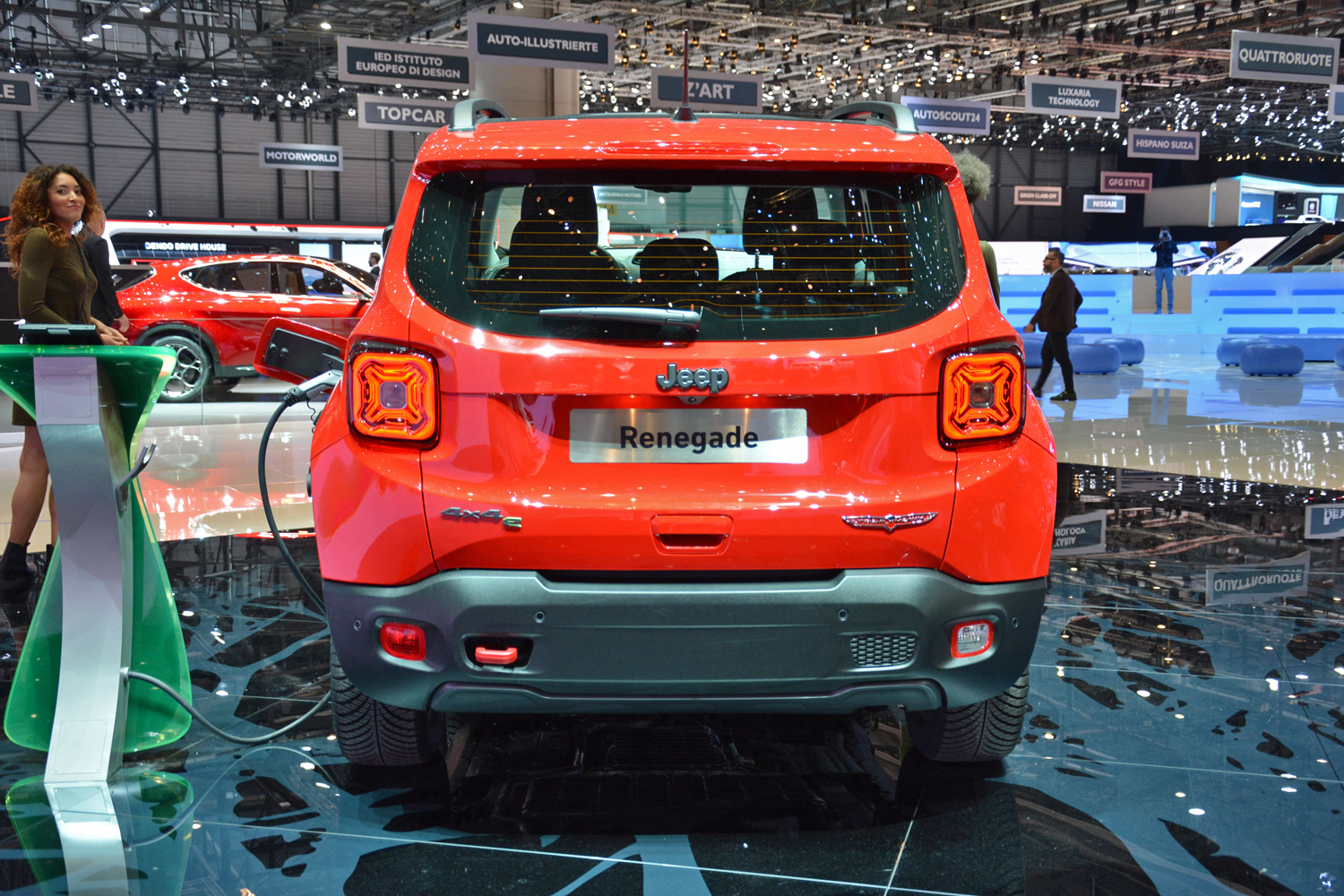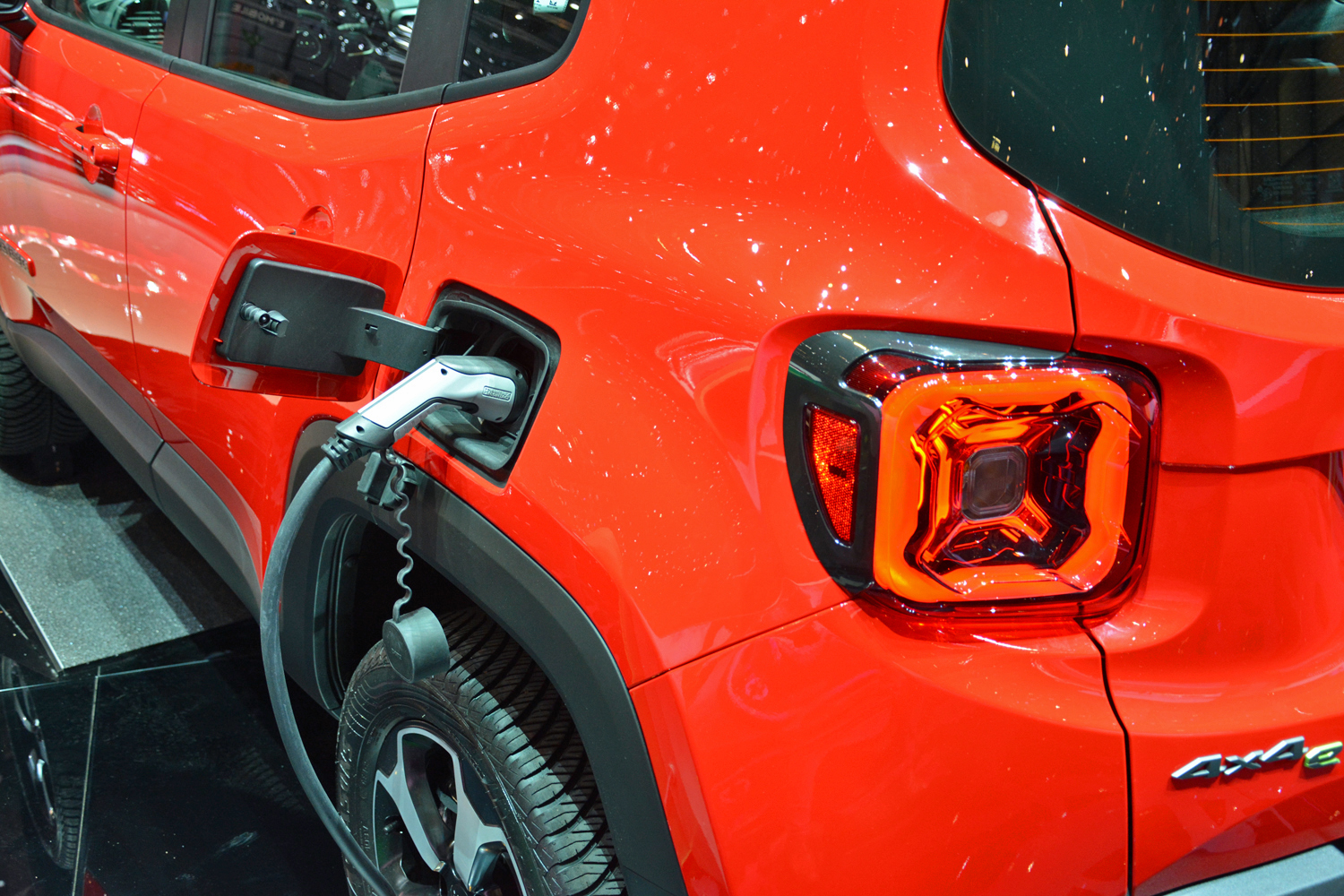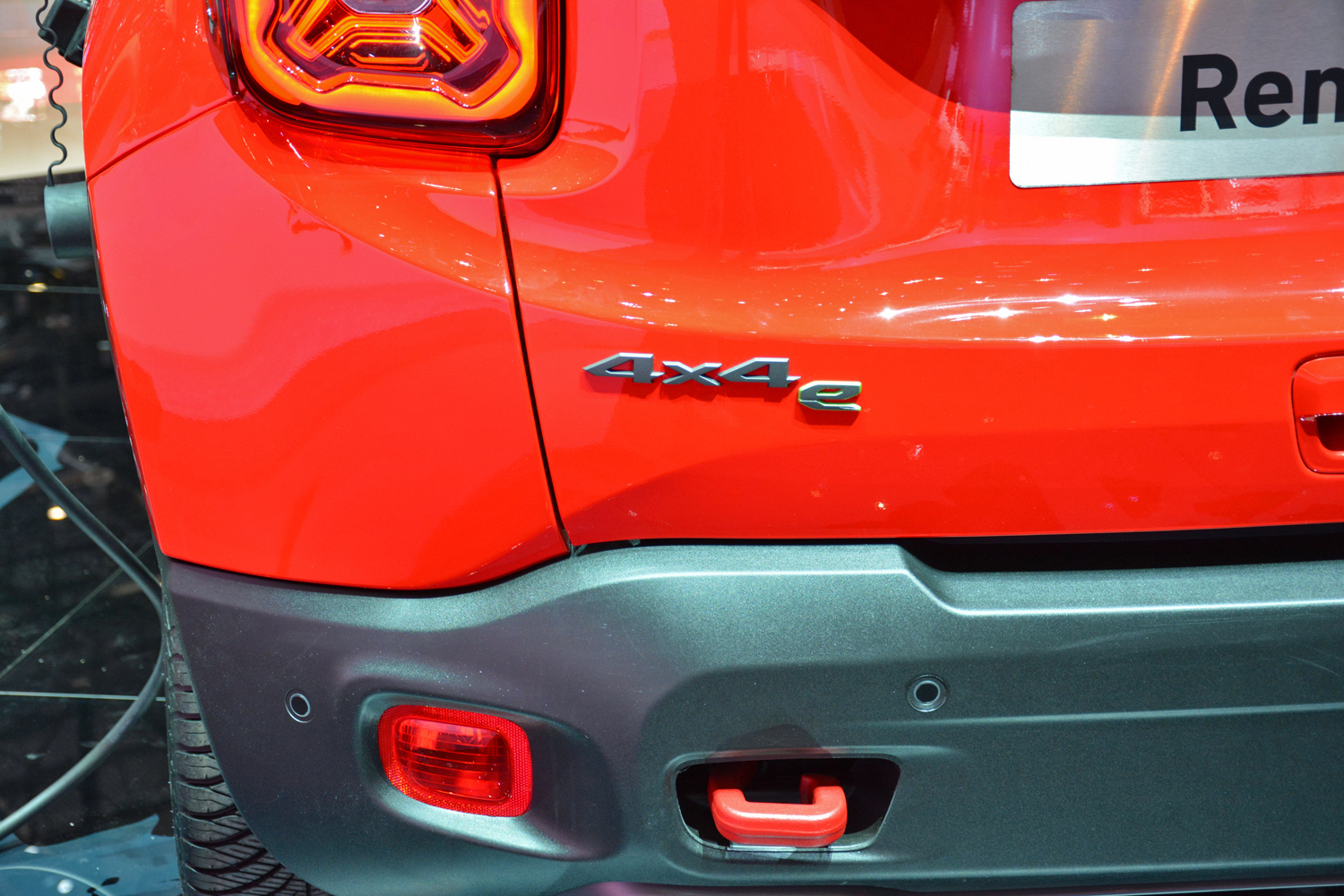Jeep is big on tradition. That’s not surprising for a brand that traces its roots back to the plucky vehicle that helped win World War II. But even this iconic brand needs to change with the times. At the 2019 Geneva Motor Show, Jeep unveiled plug-in hybrid versions of its two smallest vehicles — the Compass and Renegade. Jeep claims the new powertrains will improve gas mileage without compromising off-road performance.
Both vehicles use a 1.3-liter turbocharged four-cylinder engine, which is essentially the same engine already offered in the Renegade in North America. The gasoline engine gets electric assist, allowing for a total system output of up to 240 horsepower (Jeep hasn’t nailed down a final number yet). That will get the Renegade from 0 to 62 mph in under 7 seconds, according to Jeep. The automaker expects similar performance from the Compass, but hasn’t confirmed that yet.
The advantage of a plug-in hybrid over a conventional hybrid is that the battery pack can be charged from an external source, hence the “plug-in” prefix. That means the pack can be bigger, allowing cars to operate solely on electric power for long periods of time. Jeep claims both the Renegade and Compass plug-in hybrids can drive up to 50 kilometers (31 miles) at speeds up to 130 kph (80 mph) on electricity alone.
Power is sent to all four wheels, but there is no physical connection between the front and rear wheels. An electric motor powers the rear wheels, negating the need for a prop shaft. This is known in the car industry as a “through the road” all-wheel drive system, and it’s already used on vehicles like Volvo’s “T8” models and various all-wheel drive Toyota hybrids. Jeep claims this allows more precise control of the torque split between the two axles — an important factor in off-roading.
That’s not the only benefit of a plug-in hybrid powertrain, according to Jeep. Electric motors provide more torque than would normally be available with the equivalent gasoline powertrains, according to Jeep. Electric motors can also be controlled like dimmer switches, providing instant and infinite adjustability of power output. That’s crucial in off-roading, where power has to be carefully meted out to avoid slipping on low-traction surfaces like mud, dirt, or rocks.
Jeep did not discuss a timeline for the launch of the Compass and Renegade plug-in hybrids, but it previously said the Renegade plug-in hybrid would start production in 2020. The automaker will introduce 10 plug-in hybrid models globally over the next few years as part of parent Fiat Chrysler Automobiles’ (FCA) ambitious electrification plans. The iconic Jeep Wrangler off-roader will be one of the models to get a plug-in hybrid powertrain. Meanwhile, Jeep sibling Alfa Romeo is debuting its own Tonale plug-in hybrid concept car in Geneva.
